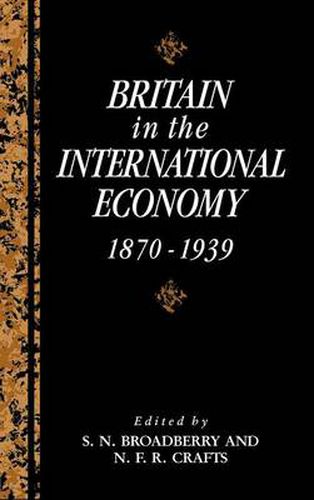Readings Newsletter
Become a Readings Member to make your shopping experience even easier.
Sign in or sign up for free!
You’re not far away from qualifying for FREE standard shipping within Australia
You’ve qualified for FREE standard shipping within Australia
The cart is loading…






During the 1950s and 1960s, research on the prewar Britain economy was influenced strongly by ideas from Keynesian macroeconomics. After two decades of onslaught on Keynesian macroeconomics, it is important to reexamine this period of history, asking to what extent the Keynesian vision still offers useful insights into advances in time series analysis as well as developments in macroeconomics to answer this question. They show that a modified Keynesian approach continues to offer useful insights into this period of history. In particular, in the face of wage and price rigidities, shocks to aggregate demand are seen as an important source of fluctuations in real output and unemployment. Furthermore, a rigid attachment to simple rules rather than the exercise of discretion in policy making is seen to have had serious costs in the disturbed environment of the interwar period.
$9.00 standard shipping within Australia
FREE standard shipping within Australia for orders over $100.00
Express & International shipping calculated at checkout
During the 1950s and 1960s, research on the prewar Britain economy was influenced strongly by ideas from Keynesian macroeconomics. After two decades of onslaught on Keynesian macroeconomics, it is important to reexamine this period of history, asking to what extent the Keynesian vision still offers useful insights into advances in time series analysis as well as developments in macroeconomics to answer this question. They show that a modified Keynesian approach continues to offer useful insights into this period of history. In particular, in the face of wage and price rigidities, shocks to aggregate demand are seen as an important source of fluctuations in real output and unemployment. Furthermore, a rigid attachment to simple rules rather than the exercise of discretion in policy making is seen to have had serious costs in the disturbed environment of the interwar period.